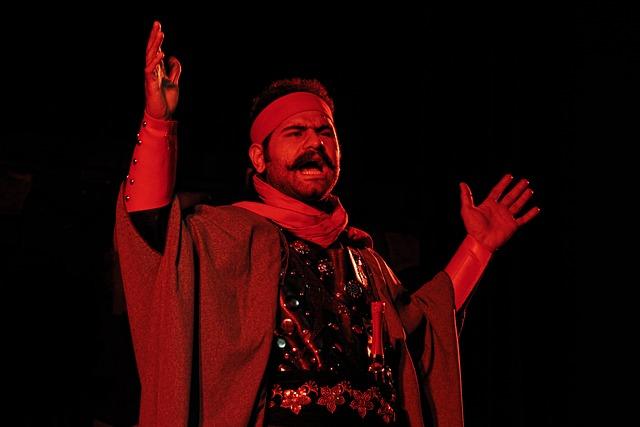In the ever-evolving landscape of the entertainment industry, the debate over whether actors without formal training should be considered for major roles continues to spark fervent discussion. As traditional pathways to acting, such as drama schools and conservatories, face scrutiny for their accessibility and relevance, a new generation of self-taught and naturally gifted performers is emerging. This shift challenges the long-held belief that rigorous academic training is the cornerstone of professional success in acting. By examining the merits and drawbacks of both formal education and innate talent, this article aims to dissect whether the absence of traditional training should indeed preclude actors from landing prominent roles in film and theater. With a critical eye, we will explore how this paradigm shift might redefine the criteria for excellence in acting, while also considering the implications for casting directors, audiences, and the industry at large.
Evaluating Talent Beyond Traditional Education
In the ever-evolving landscape of the entertainment industry, the notion of talent has transcended the boundaries of traditional education. While formal training offers a structured path to mastering the craft, many actors without such backgrounds have demonstrated exceptional prowess on screen. Casting directors and producers are increasingly valuing qualities like authenticity, emotional depth, and unique perspectives, which often come from lived experiences rather than classroom instruction.
- Authenticity: Untrained actors often bring a raw, unfiltered energy that resonates with audiences.
- Diverse Perspectives: Non-traditional paths can lead to diverse storytelling, enriching the cinematic landscape.
- Adaptability: The absence of formal constraints allows for a more flexible approach to character interpretation.
Ultimately, the essence of acting lies in the ability to connect with the audience. As the industry becomes more inclusive, the value placed on diverse talents and backgrounds continues to grow, challenging the long-held belief that formal training is the sole indicator of an actor’s potential.

The Impact of Untrained Actors on Film Quality
When considering the influence of untrained actors on cinematic productions, several factors come into play. Performance authenticity can be a double-edged sword; on one hand, these actors may bring a raw, genuine quality to their roles, creating an immersive experience for the audience. This can lead to spontaneous performances that capture a sense of realism not easily replicated by seasoned professionals. However, the lack of formal training can sometimes result in inconsistent performances, where emotional depth and character development might fall short.
- Pros: Natural talent, fresh perspectives, and unique interpretations.
- Cons: Potential for lack of discipline, limited understanding of techniques, and risk of underperformance.
Filmmakers must weigh these aspects carefully, as the decision to cast untrained actors could either invigorate a project with originality or undermine its overall quality. The choice ultimately hinges on the director’s vision and the specific demands of the narrative.

Balancing Experience and Fresh Perspectives in Casting
In the world of casting, finding the right balance between seasoned actors and newcomers with fresh perspectives can be a game-changer. Experienced actors bring a wealth of knowledge, honed skills, and a deep understanding of the craft that can elevate a production. Their ability to navigate complex characters and emotional depth often adds a layer of authenticity to a performance. However, there is an undeniable allure in casting actors who may not have traditional training but possess a raw, untapped potential. These individuals can introduce a unique energy and spontaneity that might otherwise be missing, offering a fresh take on familiar roles.
Consider the following benefits of integrating both trained and untrained talent:
- Diversity of Interpretation: Newcomers often approach roles with a unique perspective, free from conventional constraints, leading to innovative portrayals.
- Authenticity: Sometimes, an untrained actor’s naturalism can resonate more authentically with audiences, bridging the gap between fiction and reality.
- Dynamic Chemistry: Mixing experienced actors with fresh faces can create unexpected on-screen dynamics, enriching the narrative and engaging viewers.
The decision to cast actors without formal training should be guided by the specific needs of the production, always aiming to enhance the storytelling experience.

Strategic Recommendations for Casting Directors
- Embrace Diversity of Experience: Consider actors with varied backgrounds as they often bring fresh perspectives and unique interpretations to their roles. This diversity can enhance the storytelling and create more relatable characters.
- Evaluate Potential and Passion: Look beyond the lack of formal training and focus on an actor’s potential and passion. Conduct auditions that test their ability to adapt and grow, which can sometimes be more indicative of future success than formal education.
- Utilize Workshops and Screen Tests: Implement workshops or screen tests to gauge an actor’s ability to take direction and collaborate effectively. This can provide valuable insights into their suitability for a major role.
- Balance Risk with Reward: Weigh the potential risks of casting an untrained actor against the potential rewards. Consider starting with supporting roles to build their experience and confidence before transitioning them to major roles.

